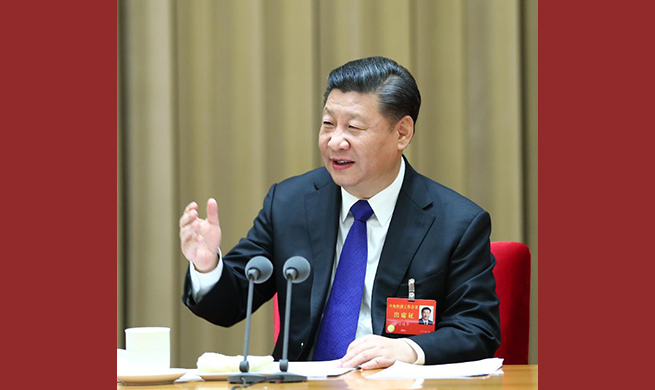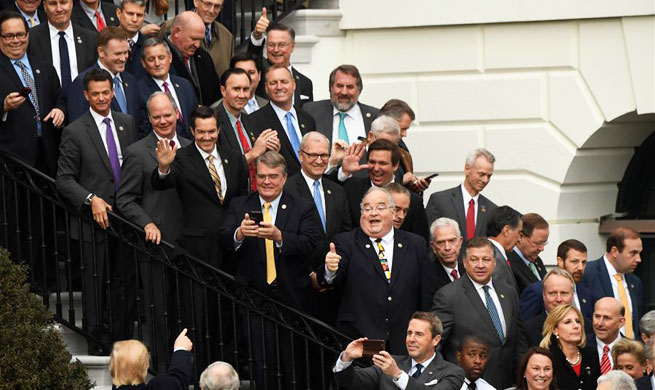BERLIN, Dec. 20 (Xinhua) -- Several leading German economists have warned against the negative implications of U.S. President Donald Trump's tax reform for Germany on Wednesday.
Clemens Fuest, president of the Ifo Institute for Economic Research (Ifo), told the press that Washington was following an "international trend towards lower taxes" with legislation recently passed in the U.S. Senate.
"This will increase competition for investment and jobs," Fuest added.
Once enacted, the fiscal plans will see the tax rate paid by U.S. corporations on their profits slashed from 35 percent to 21 percent.
The average corporate tax rate among countries who are members of the Organization for Economic Cooperation and Development (OECD) is currently 25 percent.
Joachim Lang, director of the Federation of German Industries (BDI) noted further that new rules concerning amortization and transnational commercial activities would create "significant incentives to shift corporate operations and investments into the United States of America."
Ralph Wiechers, Chief Economist at the German Engineering Federation (VDMA) urged Berlin to respond "constructively" by reducing the fiscal burden on companies in Germany if it wanted to prevent jobs and businesses from relocating to the United States.
Aside from calling for lower taxes, Wiechers also proposed a novel form of subsidies for research conducted by small and mid-sized companies.
"In light of record tax revenue in Germany, there is an opportunity for an intelligent reform of fiscal structures", the VDMA chief argued.
Similarly, BDI's Lang voiced his belief that a "comprehensive reform" of the German taxation system had become "all the more urgent" due to the measures taken by the Trump administration.
Fuest praised the U.S. reform for tightening restrictions on tax havens in spite of a resulting risk that internationally-active firms could become subject to double taxation. He also pointed out that controversial plans to raise taxes on imports, which would have dealt a heavy blow to German exporters, had been scrapped.
Nevertheless, Germany would have to "react to prevent the loss of profitable investments and jobs to the U.S.," according to a statement by Fuest.

















